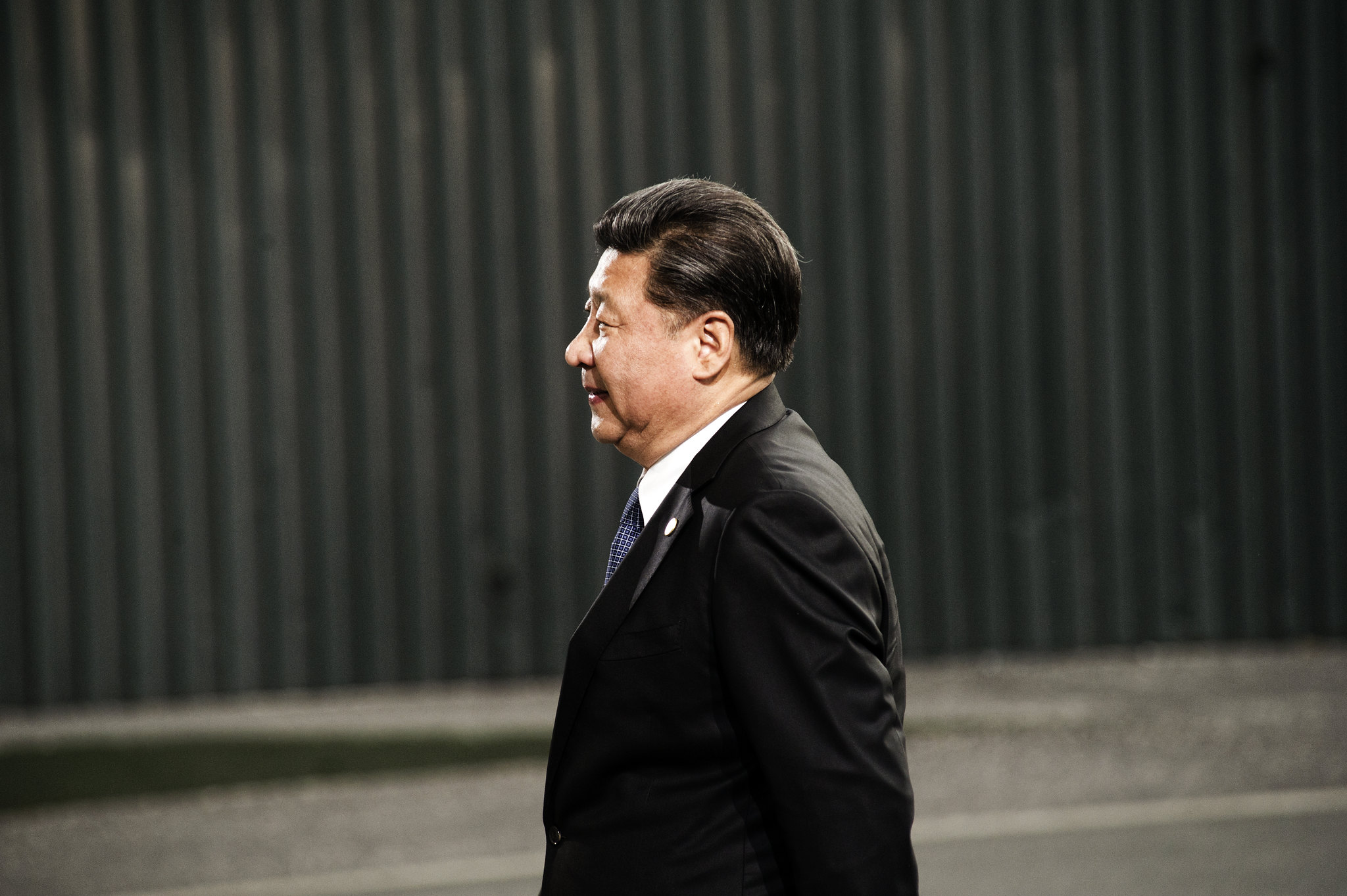Can China Escape the Innovation Trap?
China faces a crucial choice: become a more creative, dynamic economy, or prioritize security and stability. Unfortunately for Beijing, it can’t have both—and unfortunately for the world, Xi Jinping appears to have chosen the latter.

Published by The Lawfare Institute
in Cooperation With

For most foreign observers, the biggest takeaway from China’s recently completed 20th Party Congress is likely that Chinese President and Communist Party Secretary Xi Jinping is tightening his grip on the world’s most populous country. But on closer inspection, the vision Xi put forward for China’s future in a headline speech to the Party Congress is a bundle of contradictions: liberal and reform-minded in some areas, bracingly authoritarian in others. No issue highlights these contradictions more clearly—or presents higher stakes for the rest of the world—than innovation. China’s future growth prospects, and the world’s chance to escape a period of prolonged economic pain, depend on China becoming much more innovative. The problem is that Xi’s China can’t have both economic creativity and political control. Xi will have to choose one or the other—and one is clearly better for both China and the world.
The political pageantry of the Party Congress belied the fact that China’s economy is in serious trouble. The world’s second-biggest economy faces a raft of headwinds, including plunging exports, a real estate price crisis, tightening restrictions on access to foreign technology and investment, and a shrinking, aging workforce. Things look so bad that China’s national statistical office delayed the release of annual economic data until after the Congress so as not to spoil the party. When the data finally emerged, it told a sobering story: The quarterly gross domestic product growth rate, though higher than analysts expected, was far below the official target of 5.5 percent. One day after the Party Congress, Hong Kong’s stock exchange duly recorded its worst day since the 2008 financial crisis. That is in large part because markets fear that China’s economic weakness will drag down not just its own growth, but the entire world economy.
China’s only hope of beating these long odds is to become a much more innovative, creative economy that generates growth primarily from new products, services, and technologies. This is a reality that Xi and other top officials have long recognized: In 2015, then-Premier Li Keqiang termed innovation the “golden key” to China’s development, and in 2020, Xi made “innovation-driven development” the crux of the 14th Five-Year Plan, intended to catapult China to high-income country status by 2035. In his report to the 20th Party Congress, Xi again placed innovation at the heart of China’s development strategy, pledging that, “[t]o meet China’s strategic needs, we will concentrate resources on original and pioneering scientific and technological research to achieve breakthroughs in core technologies.”
Xi is faced with a problem, however. Innovation is a complex process that can’t simply be willed into being. Despite the massive resources Beijing has invested in research and development, China’s track record on innovation is decidedly mixed. In the most recent Global Innovation Index rankings—a widely used metric of countries’ capacity for innovation—China did not crack the top 10 list. The gap appears to be biggest in the most cutting-edge fields, such as biotechnology, where one recent index of early-stage innovation placed China at 0.3 compared to 1.5 for the United States and Europe. Even Xi himself seems to recognize China’s challenges in becoming a more innovative country: In 2019, he reportedly called a lack of innovation China’s “Achilles Heel.”
Thus, it is all the more odd that Xi appears to believe that economic creativity and tight political control can coexist, let alone bolster innovation. Xi’s speech to the 20th Party Congress was peppered with ambitious proposals to boost innovation, including one to create a new system of national laboratories modeled on those of the United States, and one that encouraged researchers to engage in “free exploration” and to “create an open and globally-competitive innovation ecosystem.” But in the same speech, Xi also pledged to “crack down hard on … subversion and separatist activities by hostile forces” and to make sure that officials are selected first and foremost on the basis of being “politically reliable.” On nearly every measure, Xi’s China is one that is increasingly closed and tightly controlled rather than creative and collaborative.
The experience of other countries suggests that Xi can’t have it both ways on innovation. A growing body of academic research shows that informal practices like creating a culture where failure and free expression is celebrated play an important role in fostering innovation. Longtime IBM CEO Thomas S. Watson credited a tolerance for failure as a key part of the company’s success under his tenure, exhorting employees that “[t]he fastest way to succeed is to double your failure rate.”
So too do serendipitous collaborations between researchers working in different fields and between government, academia, and business. Innovations as varied as X-ray technology, penicillin, and Post-it Notes all stemmed from unplanned, chance conversations and encounters between people working on different teams and projects. These loose networks and practices thrive in open societies—and struggle in more closed ones.
That is where several of Xi’s recent moves do not bode well for China’s innovation capacities. These include Xi’s pledge to expand the role of “party cells,” which often function as enforcers of party discipline and dogma, in universities and the private sector, and his crackdown on business leaders. Two years ago, Jack Ma, arguably China’s most successful tech entrepreneur, was forced to abandon a massive initial public offering because he had reportedly offended Xi. That is a strange way to encourage the risk-taking that is fundamental to innovation.
So if Xi can’t have both economic creativity and political control, what does it mean for China and the rest of the world? China is such a large and diversified economy, and its talent base is so rich, that Xi may get away with fostering some innovation without surrendering meaningful political control. Chinese firms and researchers are likely to continue to get more innovative despite Beijing’s policies rather than because of them. But Xi’s obsession with control will also impose sharp limits on China’s innovation capacity. A China that continues to prioritize political control rather than economic creativity is unlikely to generate the economy-wide innovation needed to outrun demographic and other long-term drags on growth. It is also unlikely to ever beat the United States and other highly innovative countries in producing breakthrough innovations.
Yet none of this should be comforting to foreign observers. A China that struggles to innovate is also one that struggles to grow—and a stumbling China will make it more difficult for all major economies to recover from the current global slump. China’s challenges in fostering innovation should also not be cause for complacency. There are worrying signs that the United States, too, is becoming less innovative. The lesson for leaders in London, Brussels, Washington, and elsewhere from China’s innovation struggles is that they should double down on investments in basic research, information, and academic exchange, and also make it easy for innovators to commercialize new ideas.
In the aftermath of the 20th Party Congress, Chairman Xi and the China he leads face a monumental choice between economic creativity and political control. It would be far better for China and the world if he chose the former, but it must prepare for the latter course to prevail.





